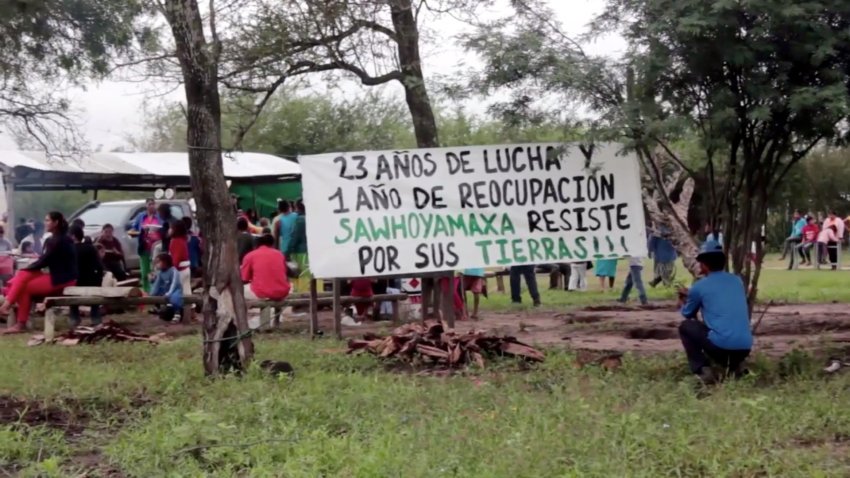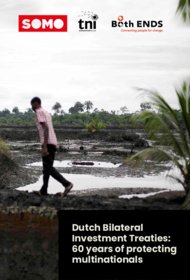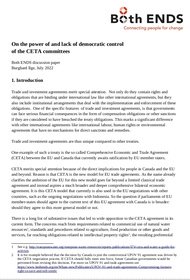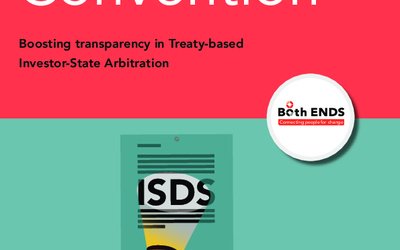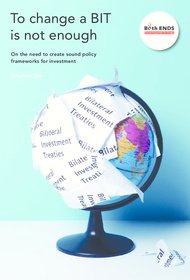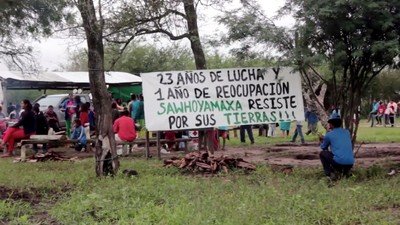Rights for People, Rules for Corporations – Stop ISDS!
Indigenous communities in Paraguay saw their attempts to regain their ancestral lands thwarted by German investors. In Indonesia, US-based mining companies succeeded to roll back new laws that were meant to boost the country’s economic development and protect its forests. This is the level of impact that investment treaties can have on social, environmental and economic development and rights. Why? Because of the ‘Investor-to-State Dispute Settlement’ clauses that are included in many such treaties.
Hampering social and environmental laws
Currently, more than 3,000 bilateral investment treaties (BITs) and other international investment agreements (IIAs) are regulating international investment flows. These agreements and treaties were intended to promote foreign investment and to boost sustainable development in low and middle income countries (LMICs). However, very little has come of this promise. On the contrary, investment treaties continue to cause serious damage to those countries and their people.
Particularly problematic is the ‘Investor-to-State Dispute Settlement (ISDS) mechanism. This give foreign investors who believe that their operations – and ultimately their profits – are affected by host state policies, the possibility to file claims at an international court of arbitration, bypassing the country’s domestic laws. Losing a case can easily cost a state billions of dollars. It is no surprise therefore that many governments of developing countries are cautious not to harm the interests of foreign investors. As a result, they are often reluctant to impose regulations that protect local communities and the environment. They are simply too afraid that such new regulations will lead to claims filed against them.
No VIP rights for multinationals!
For several years now, Both ENDS has been drawing attention to the uneven balance of rights and responsibilities between foreign investors and host countries – and the repercussions for poverty reduction and sustainable development. We do this together with partners in the Netherlands and worldwide. The good news is that our message is being heard: organisations and civilians across the world are increasingly speaking out against ISDS. The time has now come to radically change the international system of investment treaties. That is why this week, a coalition of Dutch organisations is drawing extra attention to European wide campaign called ‘Rights for People, Rules for Corporations – Stop ISDS!’. We call for a new international policy framework and rules for investment in which human and environmental rights take precedence over profit.
To illustrate the far-reaching impact that ISDS can have on people’s rights to land, on agrarian and industrial reform policies, and on the protection of the natural environment, we highlight the cases of Paraguay and Indonesia.*
*The case of Paraguay was originally discussed in Right to Food Quarterly Vol.2 No.1 (2007). Both cases were also presented in the 2015 publication ‘To change a BIT is not Enough’ by Both ENDS.
Paraguay
How ISDS becomes a reason to violate people's land rights
Indonesia
How ISDS thwarts domestic policies to boost economic development and protect the forest
For more information
Read more about this subject
-
Dossier
Investment treaties

Investment treaties must be inclusive, sustainable and fair. That means that they must not put the interests of companies before those of people and their living environment.
-
Press release / 23 May 2023
60th anniversary of Dutch bilateral investment treaties no cause for celebration

On 23 May, the Netherlands celebrates 60 years of bilateral investment treaties (BITs). The first BIT was signed with Tunisia in 1963. These treaties were intended to make an important contribution to protecting foreign investments by Dutch companies. A study by SOMO, Both ENDS and the Transnational Institute (TNI), however, shows that in practice they mainly give multinationals a powerful instrument that has far-reaching consequences people and the environment worldwide.
-
Publication / 23 May 2023
-
Publication / 7 July 2022
-
News / 26 June 2020
630 civil society groups sound alarm over wave of Covid-19 claims in 'corporate courts'

Countries could be facing a wave of cases from transnational corporations suing governments over actions taken to respond to the Covid pandemic using a system known as investor-state dispute settlement, or ISDS. Cases could arise from actions that many governments have taken to save lives, stem the pandemic, protect jobs, counter economic disaster and ensure peoples' basic needs are met. Threats of cases have already been made in Peru over the suspension of charging on toll roads, and law firms are actively advising corporations of the options open to them. 630 organisations from across the world, representing hundreds of millions of people, are calling on governments in an open letter to urgently take action to shut down this threat. The letter below is published today.
-
News / 11 October 2019
Rights for people, rules for corporations: the case of Indonesia

In Indonesia, US-based mining companies succeeded to roll back new laws that were meant to boost the country’s economic development and protect its forests. This is the level of impact that investment treaties can have on social, environmental and economic development and rights. Why? Because of the ‘Investor-to-State Dispute Settlement’ (ISDS) clauses that are included in many such treaties.
-
News / 11 October 2019
Rights for people, rules for corporations: the case of Paraguay
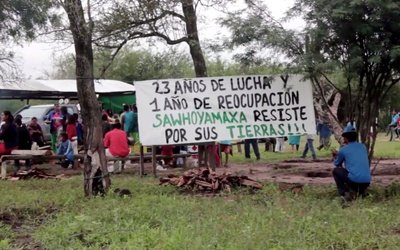
Indigenous communities in Paraguay saw their attempts to regain their ancestral lands thwarted by German investors. This is the level of impact that investment treaties can have on social, environmental and economic development and rights. Why? Because of the ‘Investor-to-State Dispute Settlement’ (ISDS) clauses that are included in many such treaties.
-
Publication / 4 April 2019
-
News / 21 January 2019
Launch of European campaign against unfair investment agreements

Today an alliance of more than 150 organisations, trade unions and social movements in countries across Europe is launching a joint programme against unfair trade and investment agreements, and especially against the controversial Investor-to-State-Dispute-Settlement (ISDS) mechanism. Under ISDS, investors can bring complaints against states whose social and environmental legislation pose a threat to their profits.
-
News / 19 June 2018
NGO's send letter to Minister Kaag to call for termination of BIT with Burkina Faso
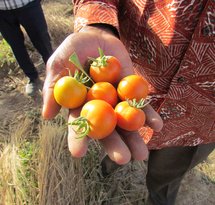
Today, Both ENDS sent a letter, signed by various civil society organisations, to Sigrid Kaag (Dutch Minister of Aid & Trade) reminding her of an important deadline and to urge her to terminate the Bilateral Investment Treaty (BIT) that exists between the Netherlands and Burkina Faso. The treaty, which can be very harmful for a poor country such as Burkina Faso, will automatically be renewed for the next 15 years if it is not terminated before July 1st this year.
-
News / 14 October 2016
5 alternative arguments against TTIP

Both ENDS will join the protest against trade treaties TTIP, CETA and TiSA on Saturday October 22nd in Amsterdam. These treaties will have negative impacts, not only in the Netherlands and Europe, but also - and maybe even more so - in developing countries.
-
Publication / 10 March 2016
-
Publication / 21 September 2015



